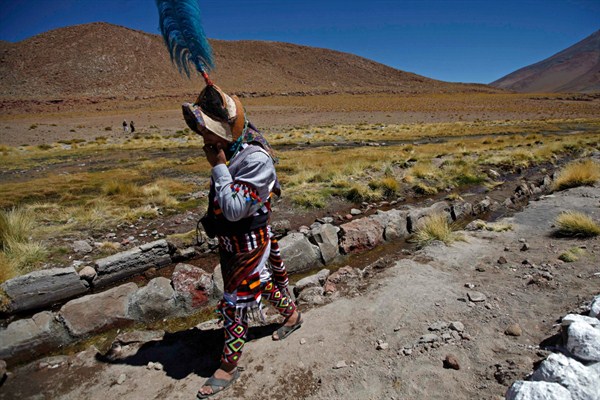Earlier this month, Bolivian President Evo Morales publicly berated his Chilean counterpart, Michelle Bachelet, for allegedly disclosing the contents of a filing before the International Court of Justice in The Hague concerning the two countries’ battle over the Silala River. It was just the latest flare-up in a dispute that has further poisoned relations between the South American neighbors. In an email interview, Chrisopher Rossi, an adjunct faculty member at the University of Iowa College of Law who has published detailed accounts of this dispute in the Stanford Journal of International Law and the Inter-American Law Review, explains the two countries’ positions and the case’s implications for other water conflicts.
WPR: What are the origins of the dispute between Chile and Bolivia over the Silala River, and what’s at stake for both countries?
Christopher Rossi: The Silala is an 8.5-kilometer waterway formed by groundwater springs in Bolivia. It flows for 4 kilometers before entering Chile. Bolivia granted a Chilean mining concessionaire rights to extract the water in 1908. The concessionaire blasted out canals that Bolivia claims adulterated the flow of the water. If allowed to return to its pre-1908 condition, Bolivia claims the water would pool in place and never enter into Chile.

